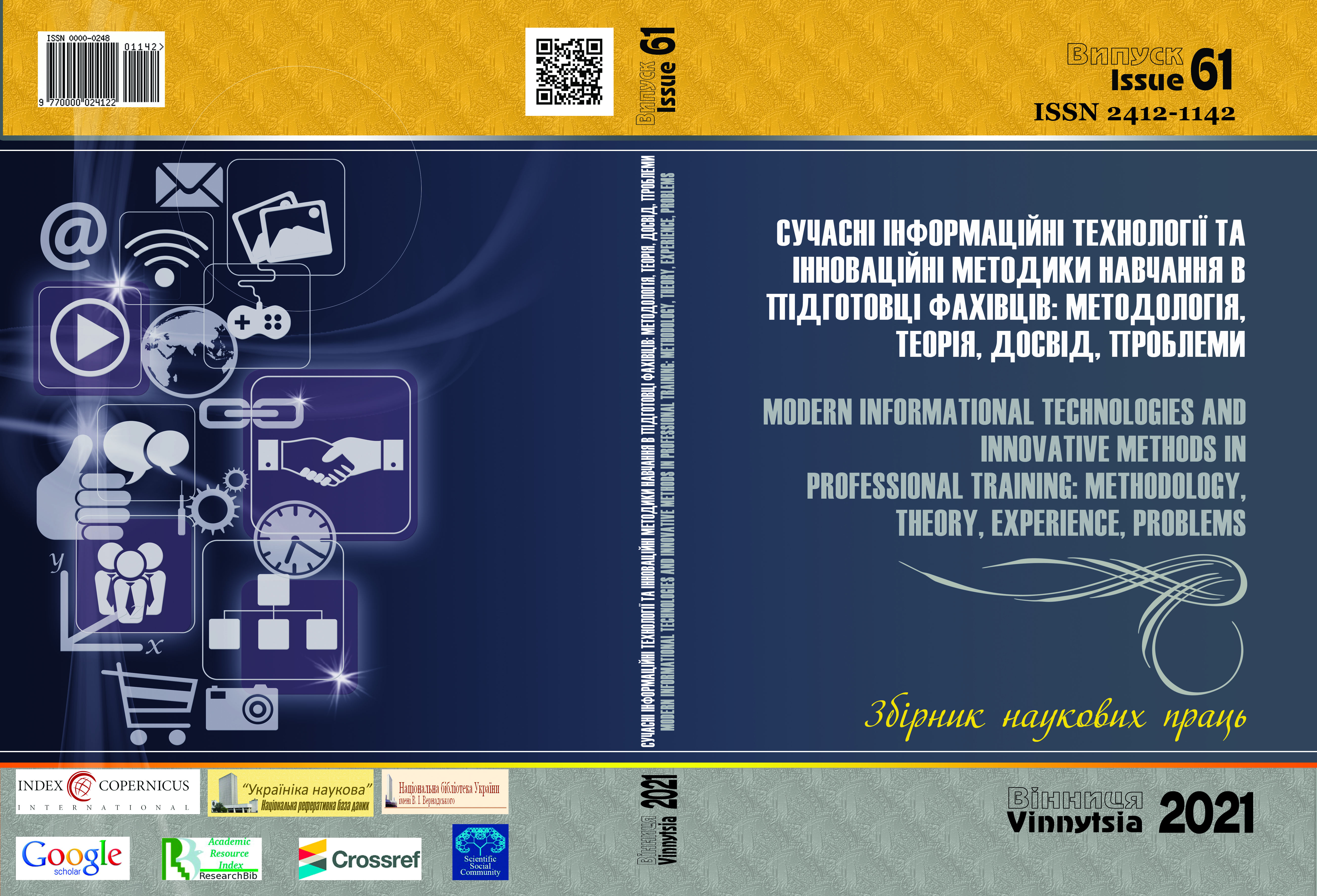BUILDING DIGITAL COMPETENCE OF FUTURE PRIMARY TEACHERS
DOI:
https://doi.org/10.31652/2412-1142-2021-61-13-19Keywords:
digital literacy, digital competence, interactive learning technologies, educational digital technologies, educational environment, modern training for future primary teachersAbstract
The article presents some contemporary aspects of the development of digital competence of future primary teachers in practical training, discusses and analyses modern approaches to the problems of forming a new model of teacher. Consideration was given to the relevance of developing the professional competence of future teachers in the context of the digitization of pedagogical education, and the content and scope of the concepts of "competence", "competence" and "professional competence" were definedIt provides for an increase in the preparation of students in teacher training institutions for professional activities.
It was found that, in modern society, in the context of a competency-based analysis of the digital education system, what is needed is an understanding that this is where the foundation of a professional’s future is laid and where future professional success is to be built, The extent to which it is able to realize its potential in action will be determined. The peculiarities of the implementation of the competency approach in pedagogical institutions of higher education are justified.
It has been proved that the formation of digital competence among students of pedagogical institutions is one of the main tasks of modern education and career, The personal and professional development of future primary school teachers is based on continuous self-improvement and the desire to find resources for self-realization processes in the professional environment. It is concluded that, in order to successfully solve vocational-oriented tasks, a graduate should be able to analyse real situational problems, find the best ways to solve them, and offer the most effective solutions to problems that arise, To be able to work with different sources of information. Innovative approaches have been sought to address the problem of creating and developing the digital competence of a future primary school teacher by integrating the educational process in higher education. The advisability of using digital technologies in the education of applicants is conditioned by the trend of restructuring the educational process in accordance with the Concept of the New Ukrainian School and taking into account modern innovations in the provision of educational services.

